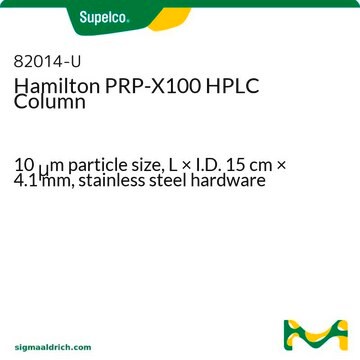850306C
Avanti
07:0 PC (DHPC)
1,2-diheptanoyl-sn-glycero-3-phosphocholine, chloroform
Synonym(s):
DHPC; PC(7:0/7:0)
About This Item
Recommended Products
Assay
>99% (TLC)
form
liquid
packaging
pkg of 1 × 20 mL (850306C-500mg)
pkg of 2 × 4 mL (850306C-200mg)
manufacturer/tradename
Avanti Research™ - A Croda Brand 850306C
concentration
25 mg/mL (850306C-200mg)
25 mg/mL (850306C-500mg)
shipped in
dry ice
storage temp.
−20°C
SMILES string
[P](=O)([O-])(OC[C@H](OC(=O)CCCCCC)COC(=O)CCCCCC)OCC[N+](C)(C)C
InChI
1S/C22H44NO8P/c1-6-8-10-12-14-21(24)28-18-20(31-22(25)15-13-11-9-7-2)19-30-32(26,27)29-17-16-23(3,4)5/h20H,6-19H2,1-5H3/t20-/m1/s1
InChI key
RBFSPQDASPEAID-HXUWFJFHSA-N
General description
Application
- in the preparation of vesicles
- to test the stability of purified cytochrome b558
- in the formation of lipid bicelles
- as an additive added to the supernatant
Packaging
Legal Information
Signal Word
Danger
Hazard Statements
Precautionary Statements
Hazard Classifications
Acute Tox. 3 Inhalation - Acute Tox. 4 Oral - Aquatic Chronic 3 - Carc. 2 - Eye Irrit. 2 - Repr. 2 - Skin Irrit. 2 - STOT RE 1 - STOT SE 3
Target Organs
Central nervous system, Liver,Kidney
WGK
WGK 3
Regulatory Listings
Regulatory Listings are mainly provided for chemical products. Only limited information can be provided here for non-chemical products. No entry means none of the components are listed. It is the user’s obligation to ensure the safe and legal use of the product.
PRTR
Class I Designated Chemical Substances
ISHL Indicated Name
Substances Subject to be Indicated Names
ISHL Notified Names
Substances Subject to be Notified Names
JAN Code
850306C-VAR:
850306C-500MG:4548174019948
850306C-BULK:
850306C-200MG:4548174019931
Choose from one of the most recent versions:
Certificates of Analysis (COA)
Sorry, we don't have COAs for this product available online at this time.
If you need assistance, please contact Customer Support.
Already Own This Product?
Find documentation for the products that you have recently purchased in the Document Library.
Articles
The critical micelle concentration (CMC) can be approximately defined as the lipid monomer concentration at which appreciable amounts (>5% of total) of micellar aggregates first begin to appear in the equilibrium: nM1<=>Mn
Our team of scientists has experience in all areas of research including Life Science, Material Science, Chemical Synthesis, Chromatography, Analytical and many others.
Contact Technical Service









